Can capitalists ever feel at ease in socialist China?
The Chinese Communist Party has yet to resolve in theory and in practice two great issues: the ever widening rich-poor divide and the question of capitalists' place in a socialist market economy. This is why the slogan "common prosperity" caused widespread panic across the private sector when it was first put forth. How will the authorities prove that "the rich will never be robbed in order to help the poor"?
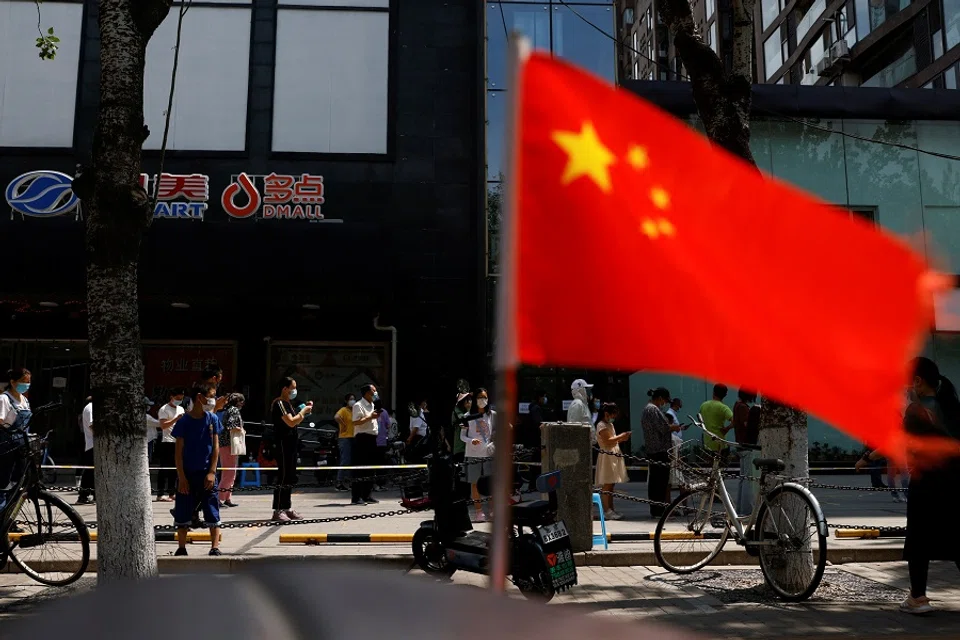
When the slogan "common prosperity" was recently put forth, more than 40 years after China's economic reform and opening up began, it caused widespread panic across the private sector.
Not only are investments by private enterprises losing steam, but entrepreneurs are also emigrating and transferring their assets to other countries at a faster pace. This is happening to such an extent that the authorities have to make repeated public efforts to assuage fears, claiming that "the rich will never be robbed in order to help the poor".
But the fact remains that achieving common prosperity is indeed part of the socialist programme. It embodies the essential nature, original aspiration and first principle of socialism. How has this seemingly irreconcilable difference come about?
It is all because of two great issues that the Chinese Communist Party (CCP) has yet to resolve in theory and in practice. The first is global in scope - the ever widening rich-poor divide; the second is unique to China - the question of the capitalists' place in a socialist market economy.
That the CCP is in charge merely means a restraint placed on capital, not that the nature of capital is changed in any way.
These two issues are closely connected, and they constitute a dilemma. On the one hand, if capital is given free rein to develop, a huge rich-poor divide would surely result; on the other hand, a return to the Marxist orthodoxy would scare away a lot of capitalists, and make those who cannot leave simply quit and lapse into inactivity. As a capitalist from Guangdong puts it, "Making use of us is what you have no choice but to do for now, but eliminating us is your mission in history."
The huge disparity between the haves and the have-nots has already kindled unrest in developed capitalist countries. In China, marketisation is really going capitalist in essence. That the CCP is in charge merely means a restraint placed on capital, not that the nature of capital is changed in any way.
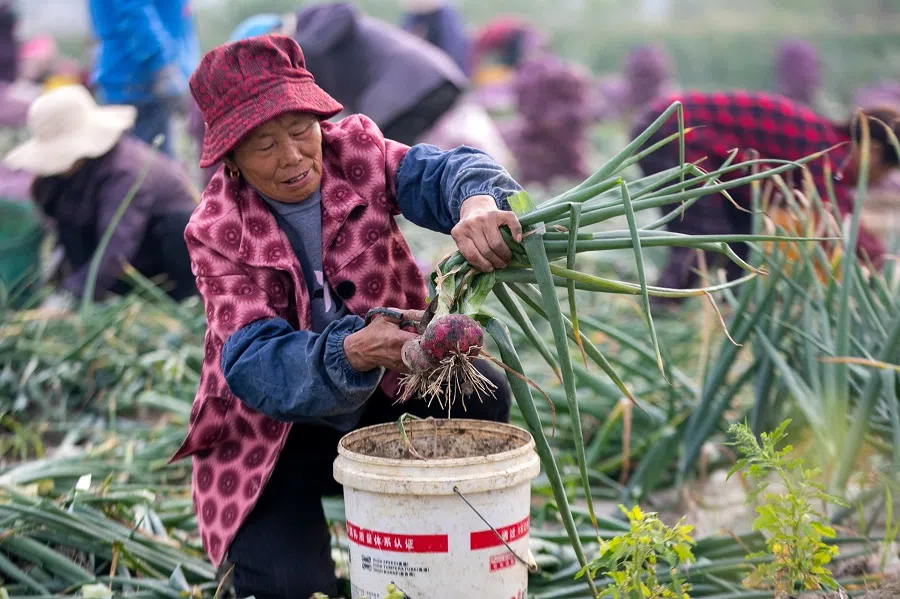
Thus, the rich-poor divide is no smaller in China than it is in other countries. The same forces that drive it in capitalist countries are also acting in China. Whether capitalism will live or die hinges on solving the disparity problem. Hence, even the capitalist countries that staunchly believe in liberalism have to try to work out a solution. Such is the necessity of history. Claiming itself a socialist country, China will have to be at the forefront of explorations towards a solution.
The capitalists in socialist China
In China, there is a well-known saying: "Fear not scarcity but inequality." On top of this, socialist ideological inculcation in the Mao era had heightened sensitivity to inequality between the rich and the poor. It is very common to feel jealous of people of means and to be antipathetic towards them. Not only are the rich not supposed to possess ill-gotten wealth, but they also have a responsibility to bear for the whole society. Government policies are often influenced by such sentiments.
There was a time when party and government officials used to have different streams of "grey" or "black" income. Surrounded and held up by corporate bosses all day, the officials very easily ended up working with them for illicit purposes, and become their aegis.
Nowadays, due to the high-pressure anti-corruption initiative and the increasingly tightened institutions, opportunities for such additional income are greatly reduced. The officials have fewer connections to private businesses and have become more sensitive to such connections.
Meanwhile, the Central Committee of the CCP keeps emphasising the regime's affinity with the people. "A government official who does not stick up for the people might as well go home and be a sweet potato seller" - the old teaching is once again spreading widely in the officialdom, because the attitude it represents is good for one's bureaucratic career. Because of their own meagre pay, the bureaucrats also find themselves able to better empathise with the feelings of the common folk.
Many entrepreneurs feel that they are out of place and never appreciated in China, so they would rather donate their money overseas.

In other countries, as long as no laws are broken, one is free to make money, even in an immoral way. In China, however, one is sandwiched between the government on the top and the masses below. With the combined pressure of moral obligations coming from both sides, unscrupulous businessmen have a high chance of being penalised.
Moreover, under the Chinese political system, once the authorities have eyes set on them, private business owners practically would have no way to defend themselves. Many entrepreneurs feel that they are out of place and never appreciated in China, so they would rather donate their money overseas. Obviously, this tendency is not beneficial for China's development as far as talents, popularity and money are concerned.
The conditions in China put the bosses here in a position unlike that of the capitalists in other countries. Patterns of behaviour that work in other countries and are thus canonised often do not work in China. In other words, system-building in China has yet to successfully foster an equilibrium whereby the different parties could comfortably situate themselves with respect to one another.
As long as the CCP fails to rise above the old orthodoxy in its theory, capitalists will always live in restless insecurity in this country like homeless dogs...
Capitalists and the social division of labour
Outside of China, a person who bears discontent against the rich may just curse and swear. In China, however, the discontent can immediately be blown up into a matter of theory, party line and class struggle. This is because the ruling party in China is one founded on and guided in its thinking by Marxism. As long as the CCP fails to rise above the old orthodoxy in its theory, capitalists will always live in restless insecurity in this country like homeless dogs, just as the "socialist market economy" will always be inherently inadequate.
Unfortunately, that is precisely what's happening, the awkward situation caused by the CCP blindly reverting to the Marxist orthodoxy in recent years.
By "capitalists", I am referring mainly to industrialists, as well as the emerging new capitalists whose capital is intellectual property. Being a capitalist is an occupation, an indispensable part of the social division of labour - in fact, a very critical part.
While exploitation can be controlled through various means, the social division of labour is an unalterable reality.
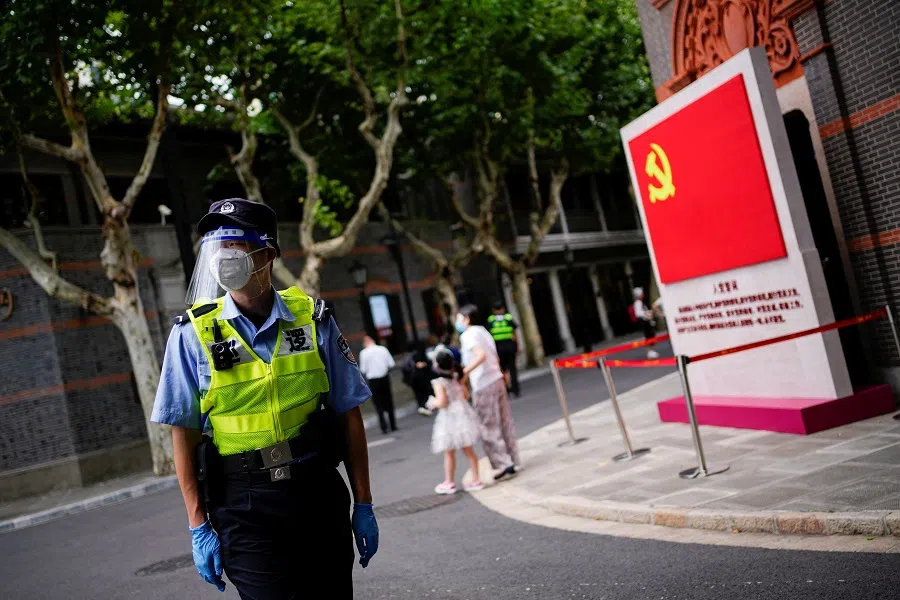
Understanding capitalists as such goes back to the first principle of capital, and it fits reality better than how Marxism defines capital in terms of "exploitation". Of course, exploitation does exist. The worst is perpetrated by predatory financial and real estate heavyweights, as well as other high-born, powerful people who live on marketing hype and robbing others in one form or another. Nevertheless, the social division of labour is what defines capital more quintessentially, and the very basis of socialised production.
While exploitation can be controlled through various means, the social division of labour is an unalterable reality. Former socialist countries sought to eliminate exploitation, but they also eliminated a crucial part of the division of labour at the same time. As a result, they fell way behind in productivity, and their economies were enervated. Such were the consequences of focusing on dogmatic political correctness and not following the first principle of capital. If there is no theoretical clarification of the issue in question, the possibility remains that China may slide down the same path of failure.
Humanism in the new capitalist
The capitalist riding on the new technological revolution is a different creature altogether. The typical capitalists of the knowledge economy are self-made workaholics who made their conquests within a very short time with their own intelligence, and used the enormous wealth they have amassed to open up new frontiers that bring good to humanity. They often live simple lives, and more and more of them are donating all their wealth away on their deathbed. They are achieving the ends of socialism with capitalist means. They mix social and natural ecological logic with the logic of the market. By doing so, they dampen, limit and change the traditional logic of capital, making it better suited to the demands of society and of the natural environment, and alleviating its alienating effect.
What is described above are the new entrepreneurs on the elite end. Only a very small minority can attain their station. Nevertheless, the same trends are unfolding on the plebeian end too. Western economics has seen the emergence of the new concept of "social enterprise" in recent times. Social enterprises are created not for profit, but for changing the fate of large numbers of people, so that they may be lifted out of poverty and embark on the path of self-development towards affluence.
... they inject a bit of common sense and a dose of humanism into what used to be the cold calculations of traditional capitalist operations.
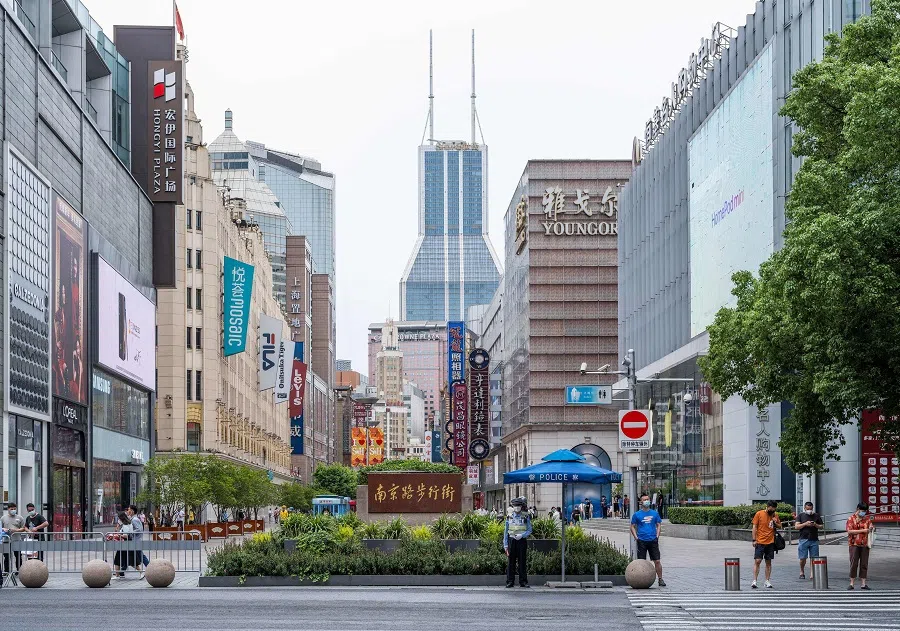
Social entrepreneurs believe in improving livelihoods through gaining profit, rather than gaining profit through improving livelihoods. They pursue "impact investment", which aims to have a positive social or ecological impact.
Among the traditional enterprises, "corporate social responsibility" has become fashionable, just as "good conscience" is featured more and more in corporate management theory. But, of course, there are actually mixed motives in this domain. Some do good with sincerity, and some see doing good as a means of making a profit. But they share one thing in common - they inject a bit of common sense and a dose of humanism into what used to be the cold calculations of traditional capitalist operations.
Assimilating capitalists into Chinese society
Once we understand that capitalists are a product of the social division of labour, we can see that "robbing the rich to help the poor" is really "killing the chickens to obtain the eggs". That is because the people who have acquired affluence first in this age are different from the leisured exploiting class of the past. The former have relied on their own hard work and wisdom, and borne the hardship of entrepreneurship. They are true labourers, not those who reap what they did not sow.
Due to history and social realities, capitalists are also more commonly involved in corruption and criminality; but the way to deal with that should be rule of law, not the political campaigns that the CCP is so accustomed to. Only reliable rule of law can give calming assurance to the capitalists.
Indeed, the perverse amassing of wealth is a reality. Its negative effects cannot be ignored. To establish the kind of socialist system of distribution that Deng Xiaoping had put much hope in - that is, a system that will allow the Chinese people to live better lives even when their per-capita income is lower than that in developed capitalist countries, the problem of excessive disparity between the rich and the poor has to be addressed.
Multiple modes of socialised expressions should be created, so that the spiritual pursuits of the entrepreneurs may be expressed in terms of the public good rather than private profits alone.

The pursuits and psychological needs of a human being are multifaceted. People's sense of achievement should not be exclusively expressed in terms of monetary wealth as it is typically in capitalist countries. Multiple modes of socialised expressions should be created, so that the spiritual pursuits of the entrepreneurs may be expressed in terms of the public good rather than private profits alone. This requires a change in the axiological orientation of Chinese society, as well as a place of legitimacy to be assigned to capitalists in socialism.
Hence, much can be drawn from the Chinese cultural tradition. For example, the Chinese government has drawn attention to the early modern pioneer industrialist Zhang Jian, who believed in "saving the nation through industrial enterprise". But there is so much more to be tapped.
Common prosperity should not just exert pressure on these people, but also create opportunities and a stage for them to realise their aspirations.
In traditional China, the local gentry used to serve as the backbone of society. They were not all "local ruffians and vile gentries". In fact, many of them were fine establishers or inheritors of cultural traditions and superb morality. In cases where they were entrepreneurs, they shouldered social responsibilities in the local community, which made them bona fide social entrepreneurs. Such a role of being the pillar of society should be revived among China's entrepreneurs.
Common prosperity should not just exert pressure on these people, but also create opportunities and a stage for them to realise their aspirations. This requires the ruling party to assimilate them into the mainstream ideologically, and not merely see them as objects of leverage. Doing so would facilitate a change in the role of the bosses who run the non-state-owned enterprises, so that they may switch from purely making money to the traditional commitment to "help the people of the world".
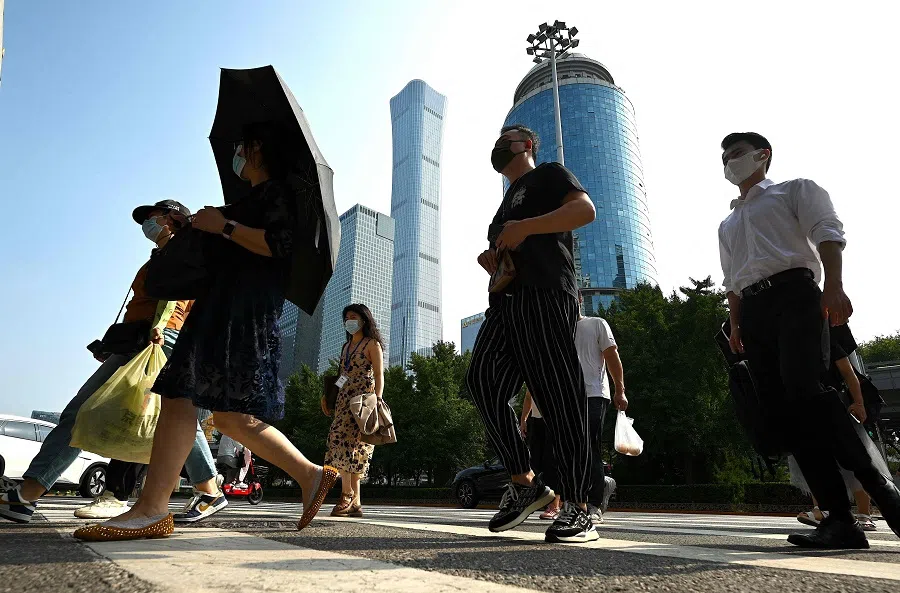
A different alliance of state and enterprises?
To put it plainly, the socialist market economy is about using market-based means to achieve the ends of socialism. Instead of destroying capital, the CCP is to reshape capital, making entrepreneurs the central force for socialist construction. Therefore, capital in socialist China and capital elsewhere in the world are not homogeneous.
In capitalist countries, social enterprises are always the underdog that cannot compete with conventional for-profit enterprises. One study has shown that the median rate of return is 6.4% for impact investment enterprises, as compared with 7.4% for their conventional counterparts.
In a socialist country, however, the alliance of such enterprises, the state and society allows them to possibly overcome this underdog status and become mainstream enterprises.
In capitalist countries, barely holding on is the norm for social enterprises. In a socialist country, however, the alliance of such enterprises, the state and society allows them to possibly overcome this underdog status and become mainstream enterprises. The CCP has a large number of ordinary party members with no apparent roles, who are indistinguishable from the common folk. The abovementioned alliance also provides a locus for bringing these people into play.
The outmoded ways of class struggle have to be changed, so that common prosperity may be depoliticised and translated into a common undertaking open to the participation of people of various persuasions. The prospects here for reform and development are immense.
Chinese bosses themselves face the challenge of how they may position themselves and establish a distinctive pattern of behaviour for capitalists with Chinese characteristics. It is their destiny to be social entrepreneurs. When given a conducive environment, the sense of achievement gained from fulfilling such a destiny may not be less gratifying than what a capitalist entrepreneur gets out of simply accumulating wealth.
Related: Why Xi Jinping's bold experiments with socialism are commendable | China needs to work towards a new socialism | Is Chinese socialism superior? | Can China succeed in income distribution reform and get rid of its celebrity economy? | A new paradigm needed: China cannot achieve 'common prosperity' with Marxism and class struggle


![[Big read] When the Arctic opens, what happens to Singapore?](https://cassette.sphdigital.com.sg/image/thinkchina/da65edebca34645c711c55e83e9877109b3c53847ebb1305573974651df1d13a)


![[Video] George Yeo: America’s deep pain — and why China won’t colonise](https://cassette.sphdigital.com.sg/image/thinkchina/15083e45d96c12390bdea6af2daf19fd9fcd875aa44a0f92796f34e3dad561cc)